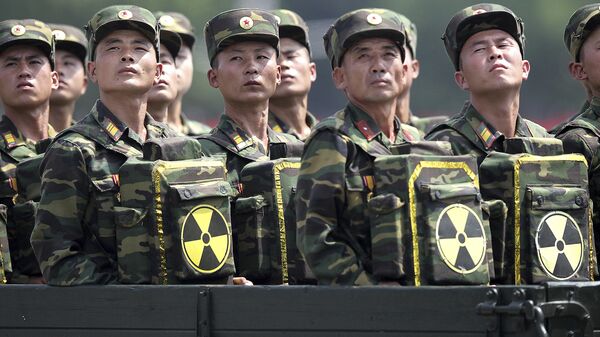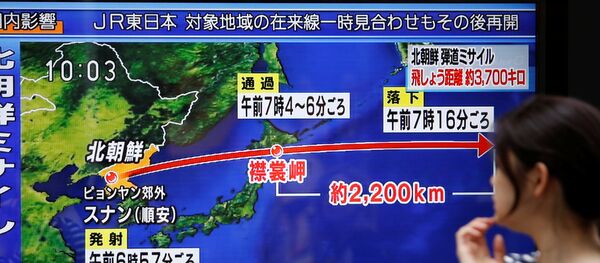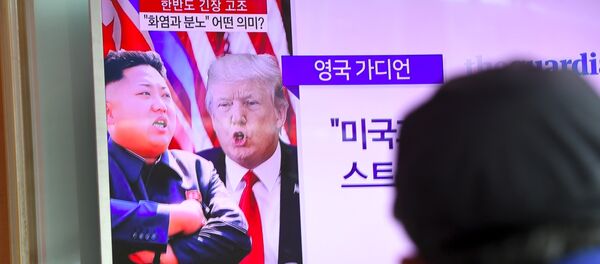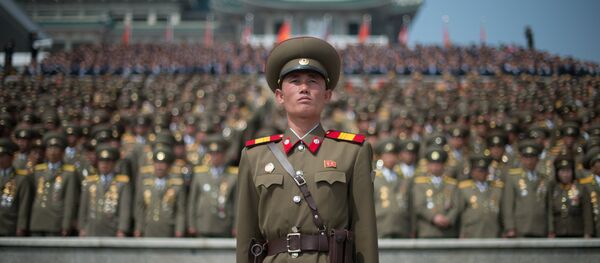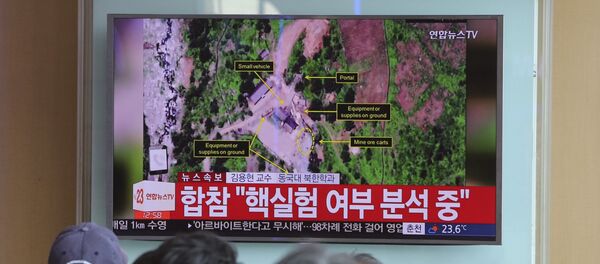MOSCOW (Sputnik) — On Sunday, US Ambassador to the United Nations Nikki Haley said that the UN Security Council had exhausted its options for getting North Korea to halt missile and nuclear program, adding that she would be "perfectly happy" handing the crisis over to the Pentagon, which had plenty of potential military solutions.
POSSIBLE DRAWBACKS OF MILITARY OPTIONS
Ba Dianjun, the head of the Institute of International Politics at the College of Northeast Asian Studies at Jilin University, said that the United States would have to carefully weigh the potential advantages and disadvantages of the military solution to the crisis on the Korean Peninsula since Pyongyang has nuclear weapons technology.
"Although these technologies can hardly be compared to the US ones, still, from the point of view of defense, the United States should consider potential harm," Ba said.
Andrei Lankov, a professor at the Kookmin University in Seoul, also pointed out that North Korea would be capable of inflicting considerable damage even if it did not use nuclear weapons.
"If the United States carries out precision strikes at military targets, destroying missiles as they are being prepared for test launches, perhaps, such activities will not lead to a full-blown conflict, but they will not have any serious consequences for North Korean missile and nuclear program either. On the contrary, North Korea will get an important experience of launches in a combat-like situation," Lankov said.
UNILATERAL ACTIONS
Ba said that he could not completely rule out Washington acting unilaterally and thus circumventing the UNSC resolution, but that was unlikely.
"If the United States acts, it will have to consider how this will impact on other large states. This concerns, in particular, China and Russia, which are permanent members of the UNSC and have their own special interests on the Korean Peninsula," the expert said.
According to Ba, the United States needed the UNSC to "pass the burden of the Korean issue on to China and Russia."
The expert added that the latest statement by Haley did not contain anything that had not been said before and served to re-apply pressure on all involved parties.
LIKELIHOOD OF DIALOGUE
North Korea’s Foreign Ministry responded to the news of UNSC tightening sanctions after Pyongyang’s latest nuclear test by condemning the new measures and pledging to double the efforts to protect the country’s sovereignty.
"Washington understands that North Korea will not agree to give up nuclear weapons through talks," Lankov said.
However, according to the expert, a strike on the government facilities or plants where missiles or nuclear weapons components are produced would prompt a counter-strike on Seoul, which could lead to a new Korean War.
ANOTHER NUCLEAR STATE
Konstantin Asmolov, with the Center for Korean Studies at the Institute for Far Eastern Studies (IFES) of the Russian Academy of Science, said that the United States did not want to launch negotiations on North Korea’s nuclear status as it may be a "bad example" for other countries.
"The recognition of the nuclear status of North Korea will seriously undermine the whole existing world order system. This is the de facto recognition of the eradication of the existing program for the non-proliferation of nuclear weapons when there are only five nuclear states," Asmolov said.
According to Asmolov, the appearance of the sixth nuclear state would give a signal to all countries that may wish to launch their own nuclear programs.
North Korea has carried out sixth nuclear tests since 2006, claiming that during the latest one it successfully tested a hydrogen bomb that could be mounted on an intercontinental ballistic missile.
